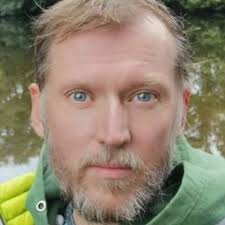
“Knowledge is a polite word for dead but not buried imagination.” E.E. Cummings
Caroline Beaton in the Atlantic wrote a useful article about prediction, which was flagged to me by UNESCO’s Futurist Sohail Inayatullah, and touches on why humans are so bad at prediction.
I would like to summarise the article and then offer some solutions from my perspective as a futurist and investor.
Beaton starts out: “Between 1956 and 1962, the University of Cape Town psychologist Kurt Danziger asked 436 South African high-school and college students to imagine they were future historians. Write an essay predicting how the rest of the 20th century unfolds, he told them. “This is not a test of imagination — just describe what you really expect to happen,” the instructions read.Of course, everyone wrote about apartheid. Roughly two-thirds of black Africans and 80 percent of Indian descendants predicted social and political changes amounting to the end of apartheid. Only 4 percent of white Afrikaners, on the other hand, thought the same. How did they get it so wrong? Students’ predictions were more like fantasies. “Those who were the beneficiaries of the existing state of affairs were extremely reluctant to predict its end,” Danziger explains, “while those who felt oppressed by the same situation found it all too easy to foresee its collapse.” Psychology research indeed suggests that the more desirable a future event is, the more likely people think it is.”
Here is another good example cited in the article:
” In 2015, 65 percent of a representative sample of American workers predicted that automation would monopolize most of the work currently performed by humans within 50 years. But 80 percent of workers believed that their own jobs would remain intact. In essence, they admitted that automation posed a threat to workers but assumed they were less susceptible than average to its effects.”
She goes on to cite examples of people thinking that various events wont happen to them — earthquakes (even whilst living in an earthquakes zone), STDs (even whilst having promiscuous sex), death (regardless of one’s circumstances.)
There is a common problem which I also observe when it comes to looking ahead:
“Anxiety affects people’s predictions subliminally. For example, they may unwittingly only gather and synthesize facts about their prediction that support the outcome they want. …..Our predictions are often less imaginative than we think. They’re also more self-absorbed. ”
And
“The author, speaker, and global-trends expert Mark Stevenson says that people who predict the future are victim to their own prejudices, wish lists, and life experiences, which are often reflected in their predictions. When I asked Stevenson for an example, he told me to consider at what point in time any futurist approaching 50 predicts life extension will be normal — “quite soon!”
The article, however, is very short on solutions. I think that this is the one of the few suggestions from a futurist called Faith Popcorn, with whom Emerging Future’s own Lynda Polio worked many years ago:
“Faith Popcorn, the CEO of “a future-focused strategic consultancy,” advises shaking up your perspective: “Learn how the other side thinks,” she says. Chat up interesting people; go to readings, talks, and fairs to “expand your horizons.”
So here are a few tips I have about seeing the ‘future’ with greater clarity. It’s not my definitive list but just something I have put together on a Sunday morning which might be of some use:
a). Read widely. And don’t just read the books/sources that are recommended by the established experts. Follow your intuition and try the fringe stuff. Don’t follow tried and tested booklists. For example if you are doing a Masters program in XYZ, its likely that many of you graduating from the same program could have similar views, particularly on certain ‘accepted paradigms’. I like the way the great mythologist Joseph Campbell abandoned a PHD and sat in a log cabin for a couple of years. In one of his books he describes how he hopped from one book — and genre/discipline — to another. It was from that experience he cultivated his own originality.
b). When you meet an ‘expert’ ask them what they are most worried about. When I was a young man and hired by Morgan Stanley, I was blessed with the opportunity to meet many experts — from analysts to senior business leaders. What I often noticed was when I asked them ‘could this happen?’ and they all said , ‘absolutely no way,’ it often did! This doesn’t mean I now ignore experts. They are incredibly useful at imparting the current bounds of knowledge, and how a field or industry works. But they might be a little short on imagination, at seeing further out into the unknown. I like to remind my clients something the brilliant ‘fringe’ scientist Rupert Sheldrake told me: “we cannot yet explain dark matter and dark energy which composes 95% of the universe, so how can our scientists be that sure of anything!”
c). When you see panels of experts always listen to the contrarian. When I watch financial TV and there are 4 or 6 talking heads on the screen, I am always interested in the dissenter. Some people think that mainstream TV just doesn’t invite the real contrarians. But this isn’t always the case. I have gleaned so many useful insights by the one guy they invite but always shut down.
d). Here’s a difficult one: when you meet someone with a completely different paradigm, stop! He or she might be an ardent Trump-Supporter, Trump-Hater, some who is pro-Israel or anti-Israel, believes in global warming/global cooling, thinks we didn’t land on the moon in 1968/believes we already landed on Mars…whatever it may be. Listen to that person very carefully and don’t just tolerate them until its your turn to speak and enlighten them. Ask yourself, what if I am totally wrong and its 180 degrees different from what I always thought? Just imagine that scenario for a moment — just like the suspension of disbelief you apply when you read books of fiction. Then for bonus points, you can apply the more advanced technique: go and do 100 hours of research reading articles or watching videos which agree with that person’s paradigm. No don’t read the New York Times article where a journalist goes and spends one day in Trump country. Or an ardent supporter of Brexit interviews a group of anti Brexit ‘remoaners’. You have to read the other side’s opinion in their own words. And of course, you will also try and read ‘independent’ work. But if you are already in a certain paradigm, you might not even know what independent is! So that why you need to shake the foundations of your assumptions. At the end of all of this , you might have an earth-shattering aha moment. It has happened to me many times. And if nothing else, you’ll understand your subject matter better and can at least understand where others are coming from. Philosophically it’s best that you are in no camp.
e). Reduce your social media reading because it is so tribal and full of echo chambers. Or perhaps find some new friends outside your tribe and start following them. That’s quite easy to do on Twitter. Find celebrity figures with different viewpoints — however heinous you think their views are — follow them and see who they follow.
f). Read more books and less internet!! In this age of over-information, your edge is to go deep. Allocate time to go mad on the internet, but also block out significant periods of the day when you don’t use wifi and you read instead. I am currently doing some ‘radical’ experiments on this front now.
g). Meditation/Techniques to clear the mind: Celebrity Fund Manager Ray Dalio often says that most of his success comes from his meditation. He makes his living from perceiving truth and then investing capital on the back of it. This helps clear away strong beliefs or conditioning so that you can perceive new ideas or patterns. In Zen, one is encouraged to enter a state of unknowing and openness, and through this insight arises. A Zen practitioner would say that in this state of ‘not knowing’ your are connected to the entire universe. It’s also a state of complete humility. Another way to explain this is by saying that meditation sharpens your mind. Like a gym for the mind. There is a lot of neuroscience etc out there which elaborates the advantages. The biggest thing I have learnt in my career in investment and as a futurist is that more ‘knowledge’ doesnt always equate to insight, but clear ‘seeing’ does. I distinguish between ‘thinking’ and ‘seeing’. More to come on this. This is the killer step and more will be said on this in my ‘advanced list’!
If you apply some of these steps you are likely to discover fascinating facts and perspectives about the world, you might become a more successful forecaster and as an added bonus, you might there is less conflict in your life!

Benjamin J Butler is a Futurist and the Founder of the Emerging Future Institute. He has spent 20 years studying cycles and patterns in human behavior, financial markets and innovation. Until recently he also wrote the international column at Dow Theory Letters, the longest running independent financial newsletter in the USA, focused on patterns in financial charts. Benjamin has held senior positions at UBS and Nomura, was a Principal at hedge fund Edge Capital, and was Managing Partner of a private venture and investment fund. He has also advised the School of Design at Hong Kong Polytechnic University on co-creation and collective intelligence and is an occasional lecturer there. He has given keynote talks at international conferences such as the World Knowledge Forum, MIPIM, the Asia Pacific Financial Forum and most recently the Chinese government on the future of finance at the Tianfu Financial Forum. He is a champion of the human mind and imagination as a way to address the so-called ‘wicked problems’ of our age.
He holds a BA in Economics and Japanese from SOAS, University of London and an MSc from Schumacher College, with a dissertation focused on new scientific approaches to futurism. He has also read law at Kings College London and Investment Management at Hong Kong University of Science and Technology. Benjamin also offers personal coaching at https://emergingfuture.com/product/benjaminjbutler/











